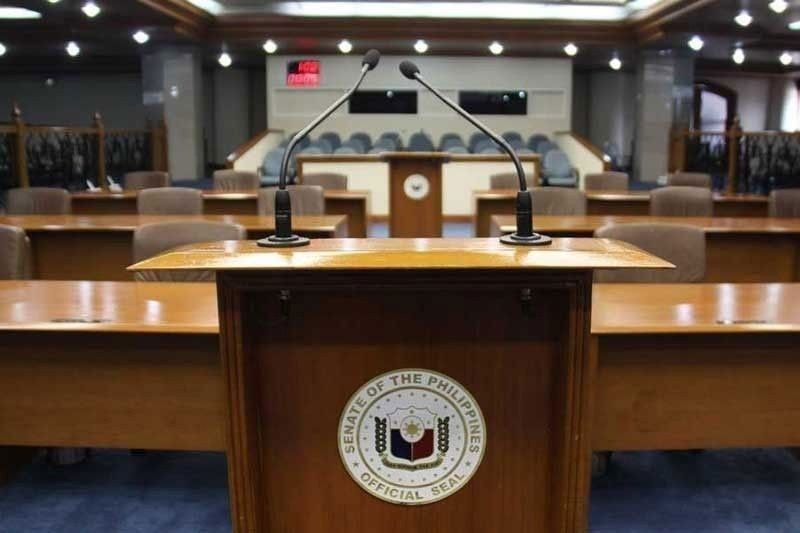
MANILA, Philippines — Both chambers of Congress’ newfound unity in pushing to liberalize the economic provisions of the 1987 Constitution is tantamount to declaring a “war” on the Charter, an opposition lawmaker said Tuesday.
After the Senate’s rare about-face on Charter change— which Senate President Juan Miguel Zubiri said was upon the president’s orders — Rep. Edcel Lagman (Albay, 1st District) said that the “war” on the Constitution is now coming from two fronts.
This comes after Zubiri filed Resolution of Both Houses (RBH) No. 6 that will limit possible changes to the Constitution to just the economic provisions that restrict foreign ownership of public utilities, education and other public services.
Zubiri’s resolution follows allegations that House lawmakers have been collecting signatures for a people’s initiative campaign to amend the Charter through a joint voting arrangement that will favor the lower chamber against the 24-member Senate. The Senate President said that President Ferdinand Marcos Jr., however, has shut this down, with the Senate instructed to take the lead on amending the Charter instead.
Lagman said that these “apparently separate efforts” from the House and the Senate will ultimately greenlight the lifting of restrictions on foreign ownership in the country even if lawmakers vote separately through a Constituent Assembly.
“The victim will be the nation’s patrimony when sensitive enterprises like public service, education, media and advertisement will be open to alien control and domination,” the lawmaker added.
Congress now following one Chacha track
As in previous Congresses, proposals to amend the 1987 Constitution often die upon reaching the Senate as senators remained cool to tweaking the fundamental law, citing other legislative priorities or concerns with political amendments.
In 2023, the House overwhelmingly passed a measure pushing to amend the Constitution through a constitutional convention. The proposal saw no real support in the upper chamber except from Sen. Robinhood Padilla.
On Monday, Zubiri and two other senators filed RBH 6 to “avert a constitutional crisis” with the House’s renewed push to amend the Constitution, the Senate president said.
The proposal seeks to amend parts of the Constitution that only allow foreigners to own up to 40% of public utilities. Meanwhile, the proposal also wants to open up foreign ownership of higher education institutions by limiting restrictions on foreign ownership to basic educational institutions.
House Majority Leader Manuel Dalipe said that the Senate has “finally seen the light” with their recent warming up to Charter change and welcomed the “alignment of the Senate and the House in amending the Constitution.”
Similarly, House Speaker Martin Romualdez said on Tuesday that the Senate’s moves to relax the economic restrictions of the Charter is a “welcome development for our trade partners” and proof the lawmakers “walk the talk.”
Lagman, however, criticized the recent push for Charter change as “out of step” with the country’s current economic problems and other issues with agriculture, food security, education, and China’s continuing aggression in the West Philippine Sea, among others.
“The Charter change initiatives will divide and obfuscate the people and divert the efforts of the political departments from the real problems not attributable to the Constitution,” Lagman added.
In 2023, Charter framer and lawyer Christian Monsod cautioned against attempts to remove the economic restrictions set by the Constitution as its drafters had deliberately limited the influence of foreign countries on the Philippine economy to ensure that Filipinos can shape their own “national destiny” without external interference.
Political science professors from the University of the Philippines Diliman also previously criticized the lower chamber’s moves to amend the Constitution, saying that infrastructure development trumps changing foreign ownership rules in attracting more investors to the country. — Cristina Chi
*****
Credit belongs to: www.philstar.com
 Atin Ito First Filipino Community Newspaper in Ontario
Atin Ito First Filipino Community Newspaper in Ontario






